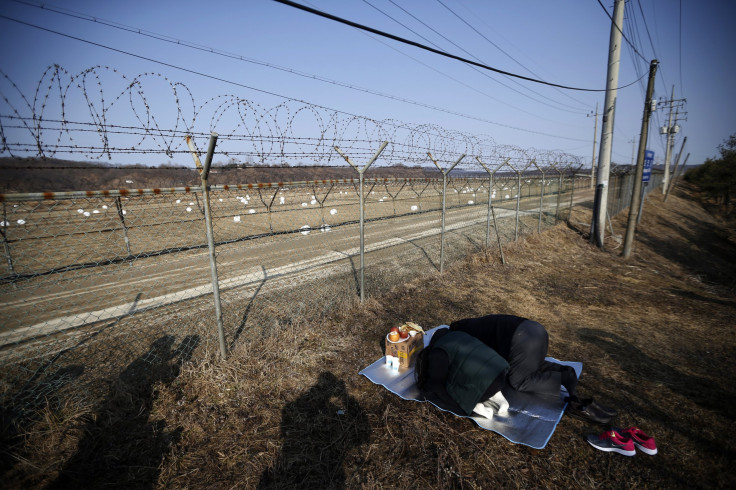North Korea Defectors Use Chinese 'Snakeheads' To Escape Regime

As described in a report by the United Nations, the human rights situation in North Korea is in a dire state. While defectors continue to sneak out of the pariah nation through illegal channels, Chinese gangs known as “snakeheads” have become the main facilitators in coordinating their escape to China.
According to a report by CNN, North Korean defectors often resort to crossing the freezing Yalu River, which divides China’s northeast province from North Korea, to escape the regime and eventually seek asylum in South Korea. China is the first step in a lengthy and dangerous process that also puts the lives of family members back in North Korea in jeopardy. Still, thousands of North Koreans see it as their only option.
“We all know how to escape to China. A lot of people in North Korea know how to do it,” one defector, only going by Lee, said. And that is through an underground network of people known as “snakeheads.” While "snakeheads" is the generic term, it is usually given to Chinese gangs in the business of human trafficking, and can also refer to Chinese being smuggled out of the country to the West or wealthier regions of Asia using fake passports and other illegitimate means.
In the past, South Korean religious and activist groups would help facilitate escapes, but as China cracks down on its North Korean border, defectors have begun turning to snakeheads.
Snakeheads are comparable to Mexican “coyote” smugglers, who bring immigrants from Latin America into the United States.
“From North Korea, people have to take advantage of smuggling rings to get out,” Jeremy Douglas, the regional representative of the UN Office on Drugs and Crime, told CNN, adding that “a steady stream of people are making the journey.”
But the fees paid to these smugglers can often be a financial burden even for success stories. South Korea budgets a sum of money for defectors called “start-up money” to help fund the beginnings of a new life. However, most of the time, this money is used to help settle old debts and paid to smugglers.
© Copyright IBTimes 2024. All rights reserved.












